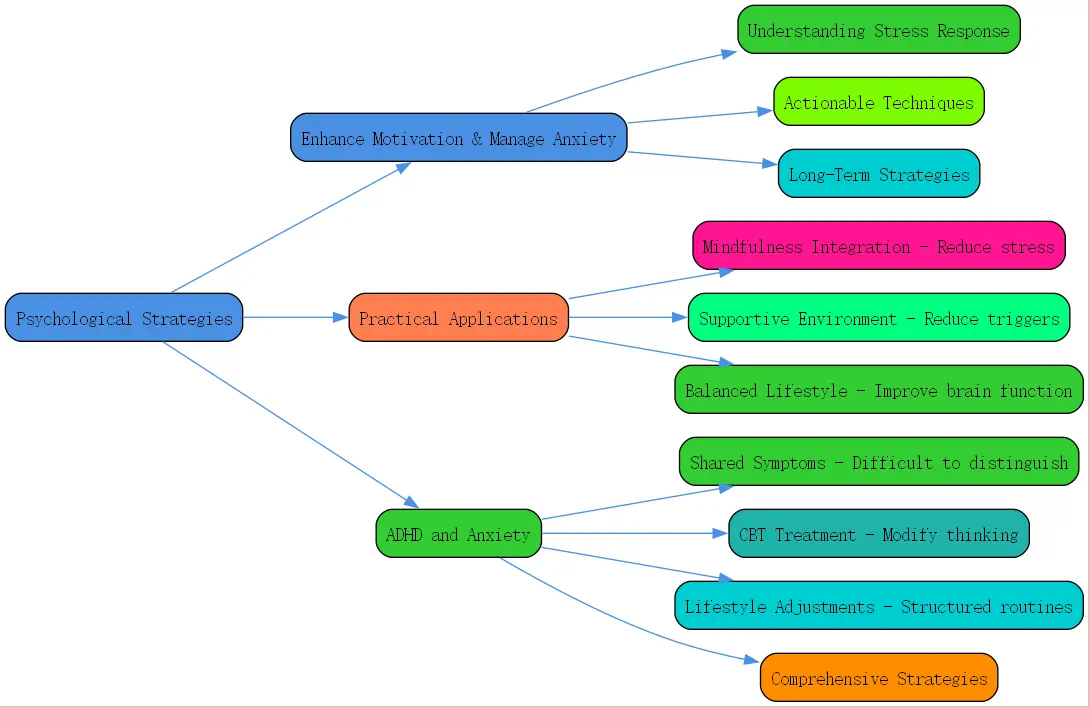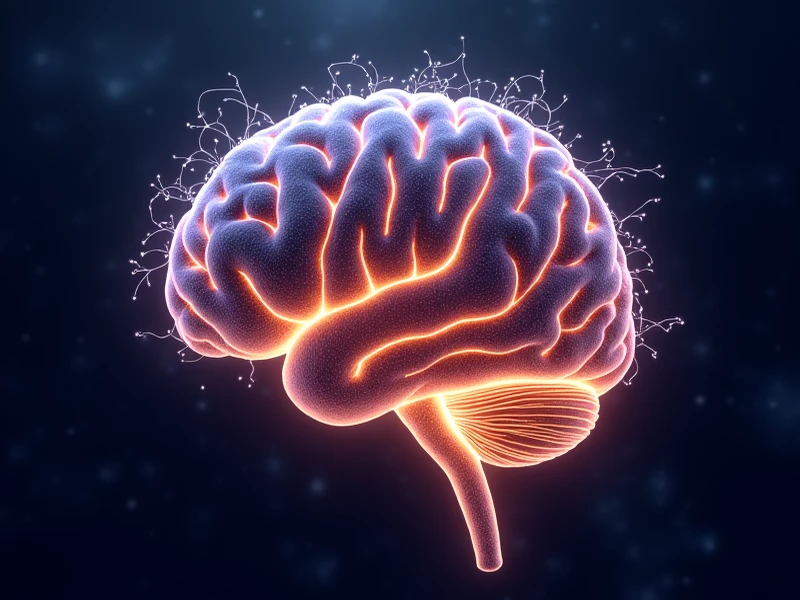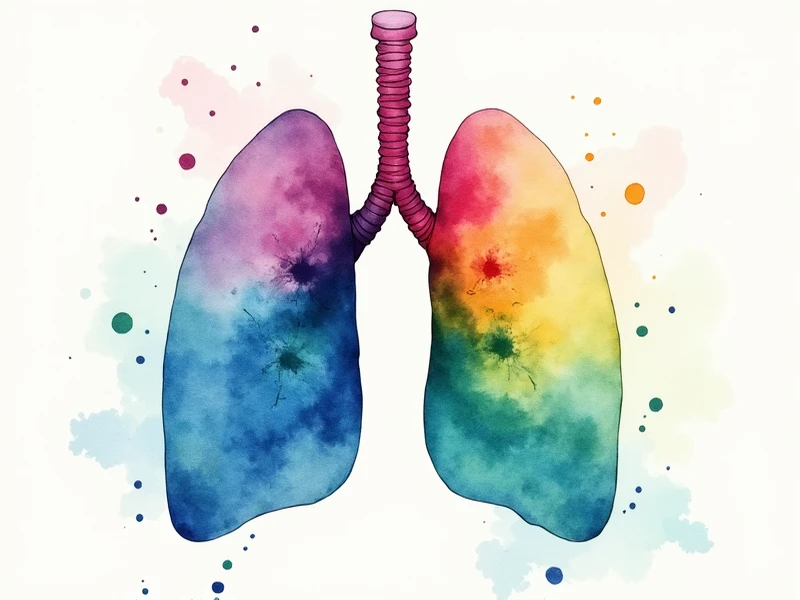Discover psychological strategies to enhance motivation and manage anxiety effectively with expert tips from BrainTalking. Learn natural methods for a healthier mind.
Psychological Strategies to Enhance Motivation and Manage Anxiety

Understanding the Stress Response: A Foundation for Anxiety Management
Stress, often perceived negatively, is essentially a system designed to mobilize brain and body functions in response to stressors. Understanding stress as a generalized system that mobilizes brain and body functions is crucial. It’s not just an emotional state; stress is a complex physiological response that can be beneficial in short-term scenarios. It can enhance immune function and sharpen cognitive abilities, preparing the body to face immediate threats鈥攂e they environmental or psychological.
The Dual Nature of Stress: Short-Term Benefits vs. Long-Term Risks
The stress response, initiated by a network of neurons, activates the sympathetic nervous system, leading to adrenaline release. This response prepares the body for action, increasing heart rate, and redirecting blood flow to essential muscles, while inhibiting less critical functions like digestion and reproduction. However, while the acute stress response can prime the immune system and enhance cognitive focus, prolonged exposure can lead to detrimental health outcomes, including anxiety and depression.
Physiological Mechanisms: How the Body Responds to Stress
Understanding physiological mechanisms is vital for managing stress effectively. The body’s response, involving adrenaline and the sympathetic nervous system, prepares us for immediate action but needs to be regulated to prevent long-term harm.

Actionable Techniques to Manage Anxiety and Stress
The Physiological Sigh: A Breathing Technique for Immediate Relief
One practical tool for acute stress management is the physiological sigh, a breathing technique involving a double inhale followed by a long exhale. This method helps regulate heart rate and reduces feelings of agitation by reinflating collapsed air sacs in the lungs.
Building Resilience: Deliberately Exposing Yourself to Mild Stress
For medium-term stress, which can last from several days to weeks, raising one’s stress threshold is beneficial. Engaging in high-intensity exercise or cold exposure, while practicing mental relaxation techniques, helps build resilience and manage higher stress levels effectively.
Cognitive Regulation: Calming the Mind During Physical Activation
Learning to calm the mind while your body is activated allows for dissociating emotional responses from physical sensations. This cognitive regulation increases the capacity to handle stress more effectively.
Long-Term Strategies: How to Manage Depression and Anxiety Naturally
The Detrimental Effects of Chronic Stress
Long-term stress is harmful, leading to serious health issues like heart disease and mental health disorders. Managing stress levels to avoid these effects is crucial for overall well-being.
The Power of Social Connections: Nurturing Relationships for Emotional Regulation
Engaging in meaningful relationships enhances feelings of well-being and reduces stress. Social interactions stimulate Serotonin release, promoting happiness and contentment, highlighting the importance of nurturing these connections for emotional regulation.
Supplements for Stress Relief: Ashwagandha, L-Theanine, and Cautions with Melatonin
Non-prescription supplements like Ashwagandha and L-Theanine can aid in managing long-term stress by reducing anxiety and improving sleep quality. However, careful use of supplements, especially melatonin, is advised to avoid negative effects.
Integrating Strategies: A Holistic Approach to Psychological Well-being
Combining Lifestyle Practices: Exercise, Sleep, and Mindful Breathing
A holistic approach includes regular exercise, adequate sleep, and mindful breathing techniques. Combining these with other strategies creates an effective plan for managing stress and anxiety.
Personalized Approaches: Finding What Works Best for You
Everyone responds differently to stress management techniques. Exploring various methods to discover what best suits your needs is essential for effective stress and anxiety management.
Seeking Professional Help: When to Consult a Healthcare Provider
In cases where stress and anxiety become unmanageable, it’s crucial to seek professional help. Consulting a healthcare provider can provide further guidance and specialized treatment options.
Tips to Manage Anxiety and Stress: Practical Applications
Daily Routines for Stress Reduction: Integrating Mindfulness
Integrating mindfulness into daily routines can significantly reduce stress levels. Practices such as meditation and mindful walking help center your thoughts and relieve stress.
Creating a Supportive Environment: Minimizing Stress Triggers
A supportive environment that minimizes stress triggers can enhance mental well-being. This includes organizing your living space to reduce chaos and potential stressors.
Healthy Habits: Nutrition and Exercise for Mental Well-being
Maintaining a balanced diet and regular physical activity are fundamental for mental health. These healthy habits support brain function and improve overall emotional health.
How to Manage ADHD and Anxiety: Specific Considerations

The Overlap of ADHD and Anxiety Symptoms
ADHD and anxiety often share similar symptoms, making it challenging to distinguish between them. Understanding these overlaps is crucial for effective management.
Cognitive Behavioral Therapy (CBT) Techniques for ADHD and Anxiety
CBT is an effective treatment for both ADHD and anxiety. It helps modify thinking patterns, improving coping strategies for both conditions.
Medication and Lifestyle Adjustments for Managing Both Conditions
While medication can be necessary, lifestyle adjustments such as structured routines and time management strategies also play a critical role in managing ADHD and anxiety.





